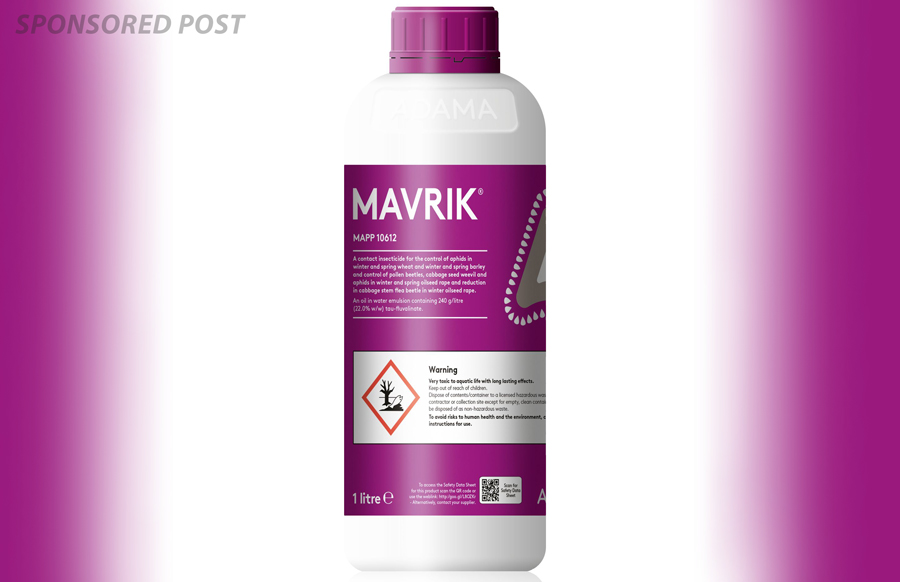Keep beneficials in mind when tackling pests this autumn
21st September 2020
With the loss of neonicotinoids forcing growers to change the way they tackle pest control in cereals and oilseed rape, pyrethroid insecticides now form the backbone of many aphid and flea beetle control programmes.
With the loss of neonicotinoids forcing growers to change the way they tackle pest control in cereals and oilseed rape, pyrethroid insecticides now form the backbone of many aphid and flea beetle control programmes.
It is worth noting however that not all pyrethroids are equal: tau-fluvalinate for example has a much lower toxicity towards beneficial organisms compared to other pyrethroid-based actives. As such, insecticides like ADAMA’s Mavrik (240 g/litre tau-fluvalinate) enable insects including rove beetles and ground beetles (which can consume up to 125 aphids per day – including pyrethroid resistant myzus aphids) to naturally predate on pests.
Ground beetles can also consume up to six slugs per day, which means using a pyrethroid with a reduced impact on beneficials (tau-fluvalinate) can also help to reduce the threat posed by molluscs.
So… if pest thresholds in your crops dictate that you need to use an insecticide this autumn, and a pyrethroid is required, choose Mavrik: it not only provides fast acting contact control of BYDV vectors in cereals and Cabbage Stem Flea Beetles in oilseed rape, it also helps to reduce the threat of aphid and slug damage by enabling beneficial insects to perform their natural predatory role unhindered.
Mavrik (240 g/litre tau-fluvalinate) is a highly active and novel pyrethroid. It is an effective and fast-acting insecticide for the control of aphids in cereals and pollen beetle, cabbage seed weevil and aphids in oilseed rape. Mavrik has also been proven to have less impact on beneficial organisms relative to other pyrethroid insecticides.

